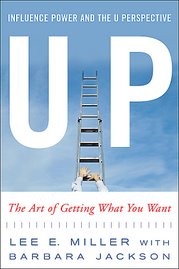When I was a young associate at a law firm, one of the pleasant tasks assigned to us was taking law students who were interviewing for jobs out to lunch. This was an opportunity for the firm to have the candidate's contemporaries sell them on the virtues of why they should come to work there.
On one occasion, several of us were out to lunch with a particularly impressive candidate. He had graduated from Princeton University and Yale Law School. He was smart, articulate and good looking, had excellent experience and seemed like he would fit in at the firm. His round of morning interviews had gone extremely well and our job was to convince him to join the firm.
Lunch started out uneventful. We talked about sports, law school and life at the firm. We ordered our lunch and several carafes of wine. The conversation was quite animated.
While we were eating and talking, the candidate reached for something to drink. Instead of his wine glass, he picked up a carafe and took a sip from it.
I don't remember much else about the lunch, but within 10 minutes of our returning to the office, everyone was talking about the "candidate who drank wine from the carafe."
While I am sure this outstanding law student had no trouble finding a job, he wasn't offered one by my firm. This incident highlights the importance interviewing plays in the hiring process. One little mistake can cost you a great opportunity.
No matter how talented you are, your accomplishments do not sell themselves. Knowing how to interview makes all the difference in the world between getting the job you want and getting a letter thanking you for your interest. The good news is interviewing is a skill that can be learned.
Effective interviewing starts with having the right mindset. It requires an understanding of how employers think and what they are looking for when they interview. To be successful, you have to do more than merely convince the interviewer you are a good candidate for the job.
Everyone who actually gets an interview probably is a good candidate for the job. Your goal is to convince the interviewer that you, with your work history are the "perfect match" for the specific job they are trying to fill. To accomplish that during your interview, requires not only a positive attitude and enthusiasm for the job, but also an in-depth knowledge of the organization, your prospective boss and the challenges they face.
That will enable you to emphasize those skills and experience that you bring which will be of particular interest to the employer. Here are some interviewing do's and don'ts that will enable you to stand out from all of the other candidates being considered for the job:
DO
DON'T
The interview is often described as the most critical aspect of the hiring process. It is your best chance to gain an advocate for being hired. Winning over the people who are interviewing you requires understanding what is important to them.
Although you are the same person with the same skills, experience and accomplishments regardless of who is interviewing you, what you chose to emphasize is up to you. So focus on what is most important to each person that interviews you.
A veteran human resources executive, Lee E. Miller is the author of "UP: Influence Power and the U Perspective -- The Art of Getting What You Want." He is also the co-founder of YourCareerDoctors.com, a website devoted to career success. Mail questions to Lee@YourCareerDoctors.com.

No comments:
Post a Comment